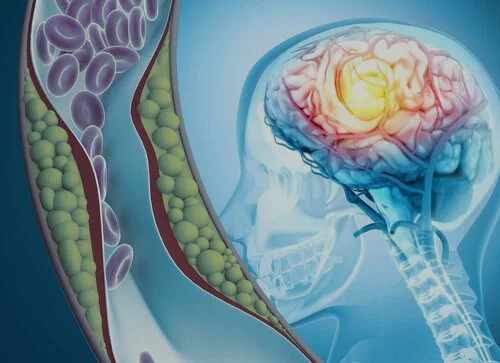Brain Stroke Treatment
Helping you beat Stroke & its Complications within & after the Golden Hour
Brain Stroke Treatment Centre

Types of Brain Stroke
1. Ischemic stroke : It is the most common which occurs when the blood arteries in the brain become restricted or clogged, resulting in substantially decreased blood flow (ischemia). Blood clots or other debris that move through the circulation, most typically from the heart, and lodge in blood vessels in the brain produce blocked or restricted blood arteries.
2. Hemorrhagic stroke : When a blood vessel in the brain leaks or ruptures, it causes a hemorrhagic stroke. Many disorders that alter blood arteries can cause brain hemorrhages. The following are risk factors for hemorrhagic stroke:
- Uncontrolled blood pressure.
- Excessive use of blood thinners.
- Bulges at vulnerable points in blood vessel walls.
- Trauma
- Protein deposits in blood vessel walls cause vessel wall weakening.
- Ischemic stroke with hemorrhage .
- The rupture of an irregular tangle of thin-walled blood arteries is a less prevalent cause of brain hemorrhage .
Conditions that can lead to Brain Stroke
Lifestyle Risk Includes
- Excess weight or obesity
- No physical activity
- Excess Drinking
- Use of drugs
Medical Risk Includes
- High Blood Pressure
- Smoking
- High Cholesterol
- Diabetes
- Obstructive Sleep Apnea
- Cardiovascular Disease
- Family History
- Heart Attack
- Previous History of Stroke
Symptoms of Brain Stroke
- Difficulties communicating and understanding may result in a condition of confusion.
- Numbness, weakness, or paralysis of the face, arm, or leg (usually only affects one side of the body).
- Problem with eyesight,(in one or both eyes), hazy or darkened vision, or, in certain cases, double vision.
- Severe headache which could be followed by vomiting.
- Disorientation or altered consciousness.
- Walking or standing difficulties.
Arms : Request that the person to raise their arms. Notice if one of the arms droops or is incapable of rising.
Speech : Request that the person repeat a short phrase and if you notice that their voice is being slurred or unusual.
Time : If you see any of these symptoms, immediately visit the hospital for medical assistance.
Causes of Brain Stroke
Brain Stroke Treatment
- T P A (tissue plasminogen activator), is a clot-busting medication administered within three hours after the onset of a non-bleeding stroke.
- Anticoagulants and antiplatelet medications that thin the blood; a combination of aspirin and prolonged release dipyridamole.
- Surgery to open the insides of restricted blood arteries in the neck .
- Medicines that keep blood clotting normal.
- Surgery to drain brain blood or reduce pressure on the brain.
- The damaged blood vessels were repaired surgically.
- Inserting a coil to close off bleeding vessels.
- Drugs that reduce or eliminate brain edema.
- To reduce pressure, a tube is inserted into a hollow part of the brain.
If you or a loved one has suffered a stroke, it’s important to seek out comprehensive treatment from a team of experts. NHS Neuro Care offers exactly that, with a wide range of services and treatments to help patients recover as much as possible. From physiotherapy and occupational therapy to speech and language therapy, we provide everything you need to get back on your feet after a stroke. We also offer support for family and caregivers, so you’re never alone during this difficult time.
Treatments
Social links
Contact us
NHS Hospital, Near Sports College, 300m From Kapurthala Chowk, Jalandhar, Punjab, India. Pin code : 144008
neurocare@nhshospital.in
+91 9888173033
0181 4633333
